|







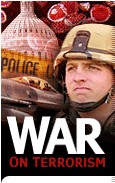


"Terrorism is not an enemy. It cannot be defeated. It’s
a tactic. It’s about as sensible to say we declare war on night attacks and expect we’re going to win that war.
We’re not going to win the war on terrorism. And it does whip up fear. Acts of terror have never brought down liberal
democracies. Acts of parliament have closed a few."
U.S. Army general, William Odom

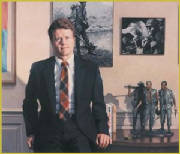
Crossing the Line
"The foreign policy of this Administration has been
taken over by people who would do something we’ve never done in our history, and that is to attempt to export our ideology
at the point of a gun.
James H. Webb, Secretary of the Navy

Military Analyst Jack Jacobs
Updated: 9:08 a.m. ET Oct 4, 2006
Because there was such an obvious link between the Taliban government and the 9/11 attacks,
the American military effort in Afghanistan has always seemed to be a righteous fight.
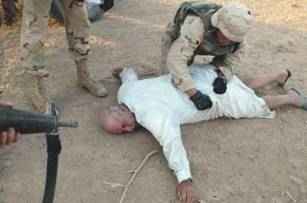
This perception has become more heightened as events in nearby Iraq have
demonstrated that poor planning and inadequate resources have exacerbated the folly of a half-baked attempt to bring democracy
to a country where many don’t understand what the word means.
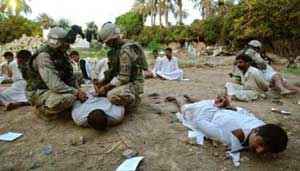
But recent events in Afghanistan have demonstrated clearly that righteousness is no guarantee
of success, as a resurgent Taliban has caused increasing security problems in and around Kandahar and along the rugged border
with Pakistan.

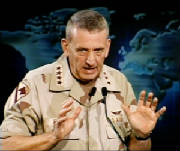
"One never knows how long a war will
take."
Gen. Tommy Franks


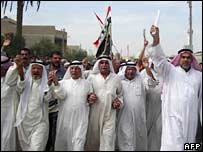
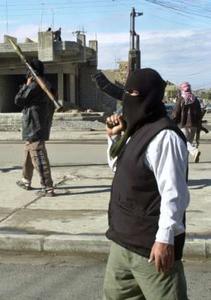
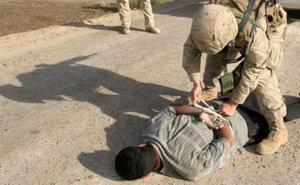
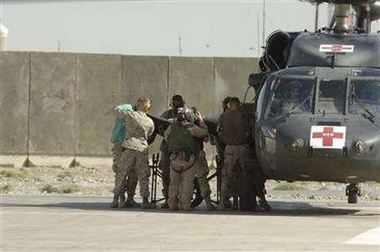


"Ladies and gentlemen, these are not assertions. These are facts, corroborated by many
sources, some of them sources of the intelligence services of other countries."Secretary of State Colin Powell, testifying
about Iraq's chemical, biological, and nuclear weapons capabilities before the United Nations Security Council, Feb. 5, 2003

If full consideration had been given to
the requirements for war, it's likely the U.S. would have kept its focus on Afghanistan, "not fueled Islamic fundamentalism
across the globe, and not created more enemies than there were insurgents."
Army Maj. Gen. John
R.S. Batiste, former commander of 1st Infantry Division in Iraq
The United States "did not ask our soldiers
to invade France in 1944 with the same armor they trained on in 1941. Why are we asking our soldiers and Marines to use the
same armor we found was insufficient in 2003,"
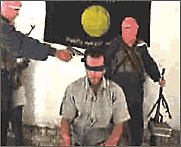
The conduct of the Iraq war fuelled Islamic fundamentalism across the globe and created more enemies for the United States
Major General John Batiste

Rumsfeld ‘Served Up Our Great Military A Huge Bowl of Chicken Feces’
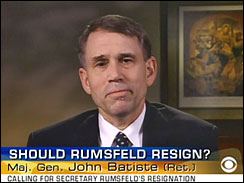
"He served up our great military a huge bowl of chicken feces, and ever since then, our military and our country
have been trying to turn this bowl into chicken salad."
Gen. Batiste
Sadly, America has yet to hold Donald
Rumsfeld accountable for his poor judgment and failed decision-making. He alone is responsible for setting America up for
the prolonged challenge we now face as we continue to plug away in Iraq and Afghanistan well into our fourth year."
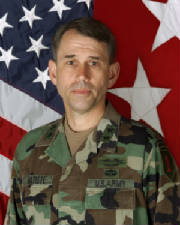
On September 25, 2006, more than five years
after the September 11, 2001 attacks, Retired U.S. Army Maj. Gen. John Batiste told Senators during his appearance before
the Senate Democratic Policy Committee, "We must mobilize our country for a protracted challenge."


Defense Secretary Donald Rumsfeld was "not
a competent wartime leader" who made "dismal strategic decisions" that "resulted in the unnecessary deaths of American servicemen
and women, our allies and the good people of Iraq." Rumsfeld, he said, "dismissed honest dissent" and "did not tell the American
people the truth for fear of losing support for the war."
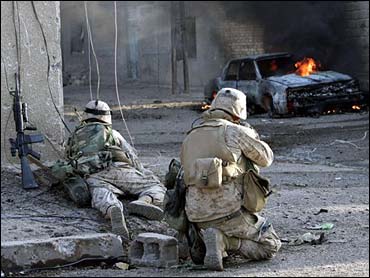
General Batiste
"We're in a real fix right now [in Iraq],"
Batiste told CNN. "We're there because Secretary Donald Rumsfeld ignored sound military advice, dismissed it all, went with
his plan and his plan alone."

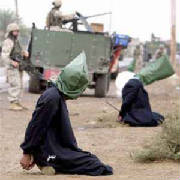
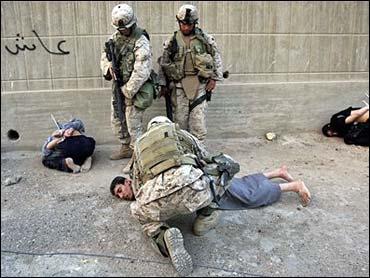
"The international community [must] reassess the manner in which this war against terror
is conducted


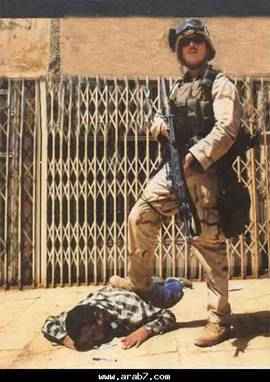


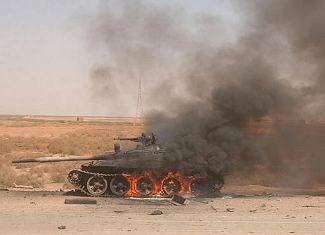
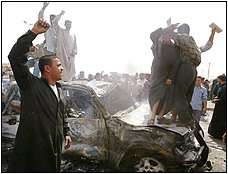
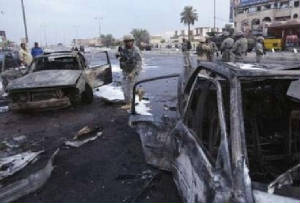

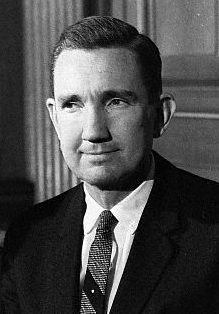
A right is not what someone gives you; it's what no one can take from you.
Ramsey Clark
"And for two years I have systematically,
consistently and on a daily basis warned the international community of what was developing in Afghanistan and of the need
for a change of approach in this regard."
UNKNOWN
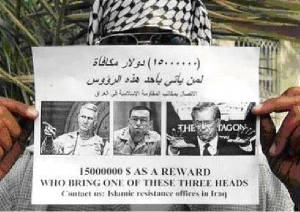
"Liberate Afghanistan from these people,
they are going to hurt everybody, not only Afghans."
Canadian military's top soldier says Taliban resistance
has grown and the pace of reconstruction is frustrating but the army is adapting to the tougher foe. Winning in Afghanistan
is going to be a "painful, slow process."
A British Army officer in Afghanistan has
highlighted the desperate shortage of resources and described the efforts of the RAF in the conflict as "utterly, utterly
useless"

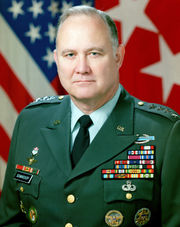
"I was very, very disappointed—let me put it stronger—I
was angry about the words of the Secretary of Defense when he laid it all on the Army. I mean, as if he, as the Secretary
of Defense, didn’t have anything to do with the Army, [as] if the Army was over there doing it themselves screwing up."
Gen. H. Norman Schwarzkopf
"True courage is being afraid, and going ahead and doing your job."
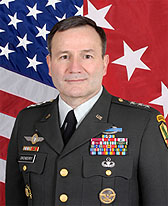
The challenge we face is not of a military
nature," Army Lt. Gen. Karl Eikenberry, the commander of U.S. forces in Afghanistan, said on Sept. 21. "The critical task
at this stage is strengthening the government of Afghanistan, developing the economy and building Afghan civil society."
"I believe that forgiving them is God's
function.
Our job is simply to arrange the meeting."

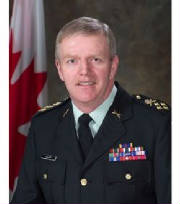
In the past month, the Taliban have dug
in for conventional battle, conducted ambushes and continued a deadly suicide bombing campaign.
General Rick Hillier
Gen. James
L. Jones, on Thursday called for allied nations to send reinforcements to southern Afghanistan, saying the 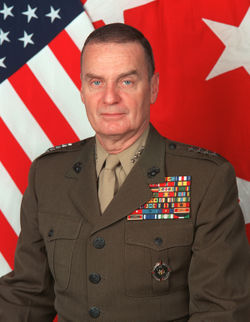 coming weeks could be decisive in the fight against the Taliban. coming weeks could be decisive in the fight against the Taliban.
NATO had been surprised by the"level of intensity"of
Taliban attacks since the alliance moved into the southern region in July and by the fact the insurgents were prepared to
stand and fight rather than deploy their usual hit-and-run tactics.
Gen. James L. Jones
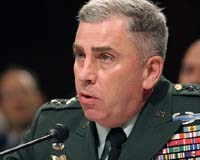
"I've rarely seen it so unsettled or volatile,"
Gen. John P.Abizaid

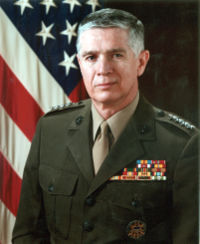 General Joseph Hoar, the Commander in Chief of U.S. Military Central Command under presidents General Joseph Hoar, the Commander in Chief of U.S. Military Central Command under presidents
Bill Clinton and George H.
W. Bush, said the George W. Bush administration would be advised to remember the French occupation of Algeria, which lasted
134 years.
This is a war that the United
States and its freedom-loving allies will win. The reason is simple. We have no choice.
Vice Adm. Herbert A. Browne, USN
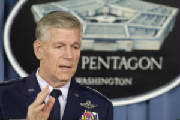
In the end, we’ll get bin Laden, just like we’ve
gotten his senior leaders. The heads of al Qaeda now are all third- and fourth-tier individuals.
Retired Air Force Gen. Richard B. Myers

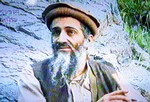
"All that we have to do is to send two
mujaheddin to the farthest point east to raise a piece of cloth on which is written ‘al Qaeda’ in order to make
the generals race there, to cause America to suffer human, economic, and political losses, without their achieving for it
anything of note other than some benefits for their private companies."
Osama bin Laden

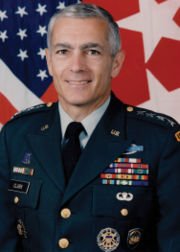
Gen. Wesley Clark
NATO supreme Allied
commander for Europe, 1997-2000
Troop strength was not the only problem. We got into this mess because
the Bush administration decided what they really wanted to do was to invade Iraq, and then the only question was, for what
reason?
They developed two or three different reasons. It wasn't until the last minute
that they came up and said, "Hey, by the way, we are going to create a wave of democracy across the Middle East." That was
February of 2003, and by that time they hadn't planned anything.
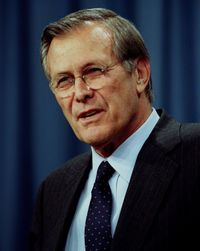
In October of 2003, Donald Rumsfeld wrote a memo asking
questions that should have been asked in 2001: Do we have an overall strategy to win the war on terror? Do we have the right
organization to win the war on terror? How are we going to know if we are not winning the war on terror?
Have you seen an American strategic
blunder this large? The answer is: not in fifty years. I can't imagine when the last one was. And it's not just about troop
strength. I mean, you will fail if you don't have enough troops, but simply adding troops won't make you succeed.

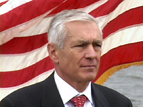
Republicans continue to thump the "war
on terror," because they believe national security is still the Democratic Party's weakness. However, a tragic thing happened
in the middle of their pr campaign. George W. Bush's national security policies were revealed to be an unmitigated disaster for America. They haven't exactly helped the Iraqis either.
Westly Clark

 "We had none of the force structure that our fighting doctrine calls for to conduct land operations," General McCaffrey says.
"It was an absolutely crazy assumption to not have had two or three army divisions, an engineer brigade, a military police
brigade and an armored cavalry regiment, all of which would have ensured no one challenged our lines of communications." "We had none of the force structure that our fighting doctrine calls for to conduct land operations," General McCaffrey says.
"It was an absolutely crazy assumption to not have had two or three army divisions, an engineer brigade, a military police
brigade and an armored cavalry regiment, all of which would have ensured no one challenged our lines of communications."
It's clear that the operational and the
tactical situation in Baghdad is such that it requires additional security forces, both U.S. and Iraqi," General Abizaid told
Sen. Carl Levin of Michigan, the top Democrat on the committee.
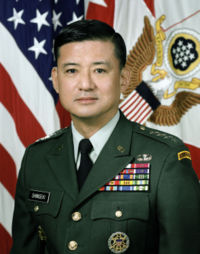
The al Qaeda went on the run days after
Oct. 7 -- losing their power, their safe havens and much of their leadership. Today, they are fragmented and their leaders
are missing, captured, killed or on the run.
Unknown
British Ministry of Defence of General Sir Richard Dannatt, Britain's new army commander,
who said British troops in Iraq are making the situation worse and must leave the country soon, and called the prime minister's
policies 'naive

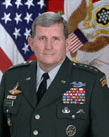
Chief of the Army says U.S. needs consensus to combat terrorism
Oct. 10, 2006 | Drew Brown
WASHINTON - The United States
needs to reach a consensus on how to fight terrorists and increase defense spending to make sure the Army stays ready to fight, the Army's chief of staff said Tuesday. Gen. Peter J. Schoomaker also called on teachers, parents and other
influential adults to encourage young people to serve in the military.
Schoomaker said the United States was "much closer to
the beginning than the end" of the war on al-Qaida and other terrorists. "Ultimate victory," he said, would require a common
understanding of the enemy and the nature of the conflict, plus a "national strategic consensus" on how to address the threat.

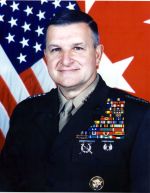 The Bush administration "had to create a false rationale for going in to get public
support." Zinni said that "the books were cooked, in my mind. The intelligence (that supported the claims made to support
the need for war) was not there." The Bush administration "had to create a false rationale for going in to get public
support." Zinni said that "the books were cooked, in my mind. The intelligence (that supported the claims made to support
the need for war) was not there."
The "strategy was flawed" - the strategy
being that invading, occupying, and setting up a new government in Iraq would help solve the broader conflicts in the Middle East. Zinni said "couldn't believe what I was hearing about
the benefits of this strategic move."

Referring to himself and Vice President Cheney, Bush said during an exchange with reporters in the
Oval Office, "We both trust General Zinni."
Zinni voiced support for the views of retired Gen. Eric
K. Shinseki, the former Army chief of staff, whose estimate that several hundred thousand troops would be needed in postwar
Iraq was dismissed by the administration as wildly off the mark.
"Recently, the Army chief of staff testified
that we would need 300,000 troops to pacify Iraq,"

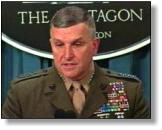
If there is a center that can hold this
mess together, I don't know what it is. Civil war could break out at any time. Resources are needed;a strategy is needed;
and a plan is needed."
"And then there’s Rumsfeld who said of Iraq, ‘We have
our good days and bad days.’ We should put this SOB up against a wall and say,‘this is one of our bad days,’
and pull the trigger."—"In the lead-up to the Iraq War and its later conduct, I saw at a minimum, true dereliction,
negligence, and irresponsibility, at worse, lying, incompetence, and corruption."
Marine Corps Gen. Anthony C. Zinni

The U.S. military is at 'full stretch'
now and will be hard pressed to respond to other conflicts unless there is a change in direction in the war in Iraq
Ret. Adm. William Crowe Jr

British foreign secretary Jack Straw, pictured in 2003,
said the situation in Iraq was "dire", adding that the United States government had made "many mistakes" after the 2003 invasion
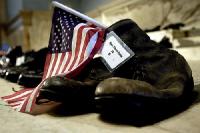
"Everybody in the military knew" that the Bush administration's plan for Iraq consisted of only half
the troops that were needed, and says that country is now "a powder keg" that could break apart into warring regions.

"It might be interesting to wonder why all the generals
see it the same way, and all those that never fired a shot in anger and really hell-bent to go to war see it a different way.
That's usually the way it is in history."
General Zinni






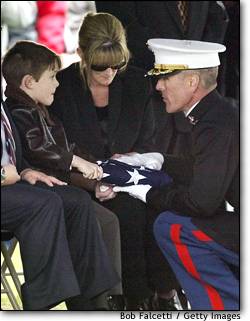
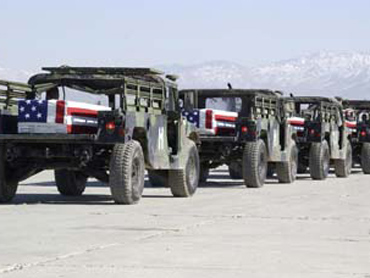


I have fought a good fight
I have finished my course
I have kept the faith.
Timothy 2:4:7
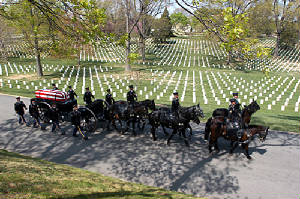


For everything there is a season,
And a time for every matter under heaven:
A time
to be born, and a time to die;
A time to plant, and a time to pluck up what is planted;
A time to kill, and a time to
heal;
A time to break down, and a time to build up;
A time to weep, and a time to laugh;
A time to mourn, and a time
to dance;
A time to throw away stones, and a time to gather stones together;
A time to embrace, And a time to refrain
from embracing;
A time to seek, and a time to lose;
A time to keep, and a time to throw away;
A time to tear, and
a time to sew;
A time to keep silence, and a time to speak;
A time to love, and a time to hate,
A time for war, and
a time for peace.
Ecclesiastes 3:1-8




"Bush is a very stupid man. The American
people are not stupid, they are very clever. I can't understand how such clever people came to elect such a stupid president."

|

